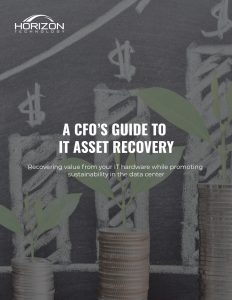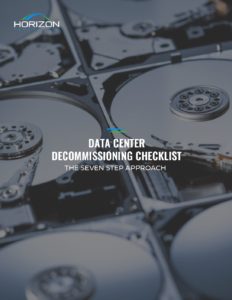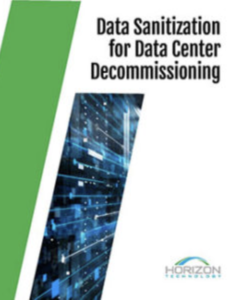While the connection may not immediately appear obvious, the coronavirus—for all the havoc it is wreaking on the IT supply chain and the outlook for demand—will ultimately speed the development of the green data center.
Here are five reasons why COVID-19 is preparing the ground for a new era of green computing:
1. Demand for cloud data center services is accelerating
These are busy times for hyperscalers as the stay-at-home economy spikes demand for cloud services. According to UN-ILO estimates, four-fifths (81%) of the world’s population has been subject to full or partial workplace closures.
This is putting the likes of Google, Microsoft, and AWS—not to mention the Chinese hyperscalers—in a commanding position. Cloud share of enterprise spending has been on an upward trajectory for many years, but the rate of acceleration is set to spike. Whether it’s public, private, or hybrid cloud, the tech giants are in the driver’s seat.
What does this mean for green computing? Put simply, the hyperscalers have long led the charge on improving data center efficiency. A recent study, led by Eric Massanet of UC Santa Barbara, revealed that the amount of energy used by data centers increased by only 6% between 2010 and 2018 in spite of a 550% growth in the volume of computing. Hyperscale data centers take the credit for much of this advance.
By contrast, a recent Supermicro study unveiled a distinct lack of appetite for green computing among IT professionals operating on-premises data centers. Almost nine out of 10 respondents (86%) said the environmental impact of their data centers was not a key consideration.
The correlation is clear: the greater the proportion of IT infrastructure controlled by the hyperscalers, the greener the data center will be.
2. Growing reliance on data center automation
It was happening anyway, but for many organizations, eager to reduce the risk of disease transmission whether on-premises or in colocation, COVID-19 has expedited the adoption of data center automation.
Although data center automation has certain limits, it seems likely that data centers will continue to operate with fewer staff physically inside facilities once the worst of the pandemic has passed.
This more hands-off attitude toward hardware in the post-COVID world will drive a further uptick in private cloud and managed service models where an outright cloud migration does not make sense. CIOs will increasingly feel the benefits of having somebody else worry about maintaining the physical equipment that runs their operations.
It’s not just the cloud giants that stand to benefit from this shift. Major OEMs are already offering hardware buyback programs for companies willing to agree to lease conversions in return for cash, among other measures.
As with point 1, the stronger hold that the cloud giants (alongside the green-friendly OEMs) have over hardware ownership, the brisker the growth of green computing practices across data centers of all sizes. By definition, hyperscalers have little tolerance for inefficiency.
3. Driving up hardware reuse as the primary challenge
There’s long been a culture of inertia around reusing data center hardware, which flies against the make-take-dispose mentality that remains pervasive to this day.
However, COVID-19 could be about to switch things up. Faced with constrained budgets, enterprises will find themselves getting increasingly resourceful at repurposing hardware for internal use.
Keeping products and materials in use for as long as possible is a key tenet of circular economy thinking in the green data center. Electronics manufacturing consortia iNEMI has long identified internal reuse of essential enterprise hardware, such as hard drives, as massively beneficial in terms of carbon emissions savings.
“The enterprise should regularly validate the internal needs of the company for hard drive reuse,” iNEMI wrote in a 2019 report on the critical role HDDs can play in driving the circular economy. “Back room or non-customer facing functions may be able to reuse the hard drive and defer the purchase of new drives by several years.”
Just make sure you have a robust strategy in place for data sanitization as hard drives move around your organization.
Even prior to reuse, we will see companies looking to get more out of their existing hardware as refresh cycles slow down. NetApp is already supplying guidance to its customers on how to better optimize available storage and other such measures.
4. Greater remarketing of data center hardware
The novel coronavirus will similarly leave firms more receptive to remarketing rather than destroying IT assets. Cash-strapped companies will think twice about end-of-use hardware before simply (and unnecessarily) relinquishing it to the shredder.
Indeed, as storage capacities increase and the average price per shipped unit goes up, companies that choose not to consider the secure remarketing of drives will be leaving money on the table like never before.
At the same time, the string of recent disruptions to upstream manufacturing in China and South East Asia (not only COVID-19 but the US-China trade war too) will solidify the market for remarketed and recertified drives.
This growth in remarketing and recertification will lead to greener and more financially sustainable data centers.
5. Increased environmental awareness resulting from COVID-19
The global response to the coronavirus has demonstrated how rapidly companies can change their operating practices, in many cases overnight.
To what degree organizations will ultimately trade air travel (a prime vector for the virus) for a greater reliance on video conferencing remains unclear. And only time will tell whether the constraints of the coronavirus will have a lasting impact on the fight against climate change.
But what is clear is that the era of frequent travel and unchecked consumption remains on hold, at least for the foreseeable future. A more cautious approach to resource management from data center managers will define the outlook for the rest of this year, and probably beyond.
Now is the time to green your data center hardware. Find out how Horizon can help bring secure, profitable, and green computing to your data center.
Stephen Buckler is chief operating officer at Horizon Technology. Connect with Stephen on LinkedIn.











